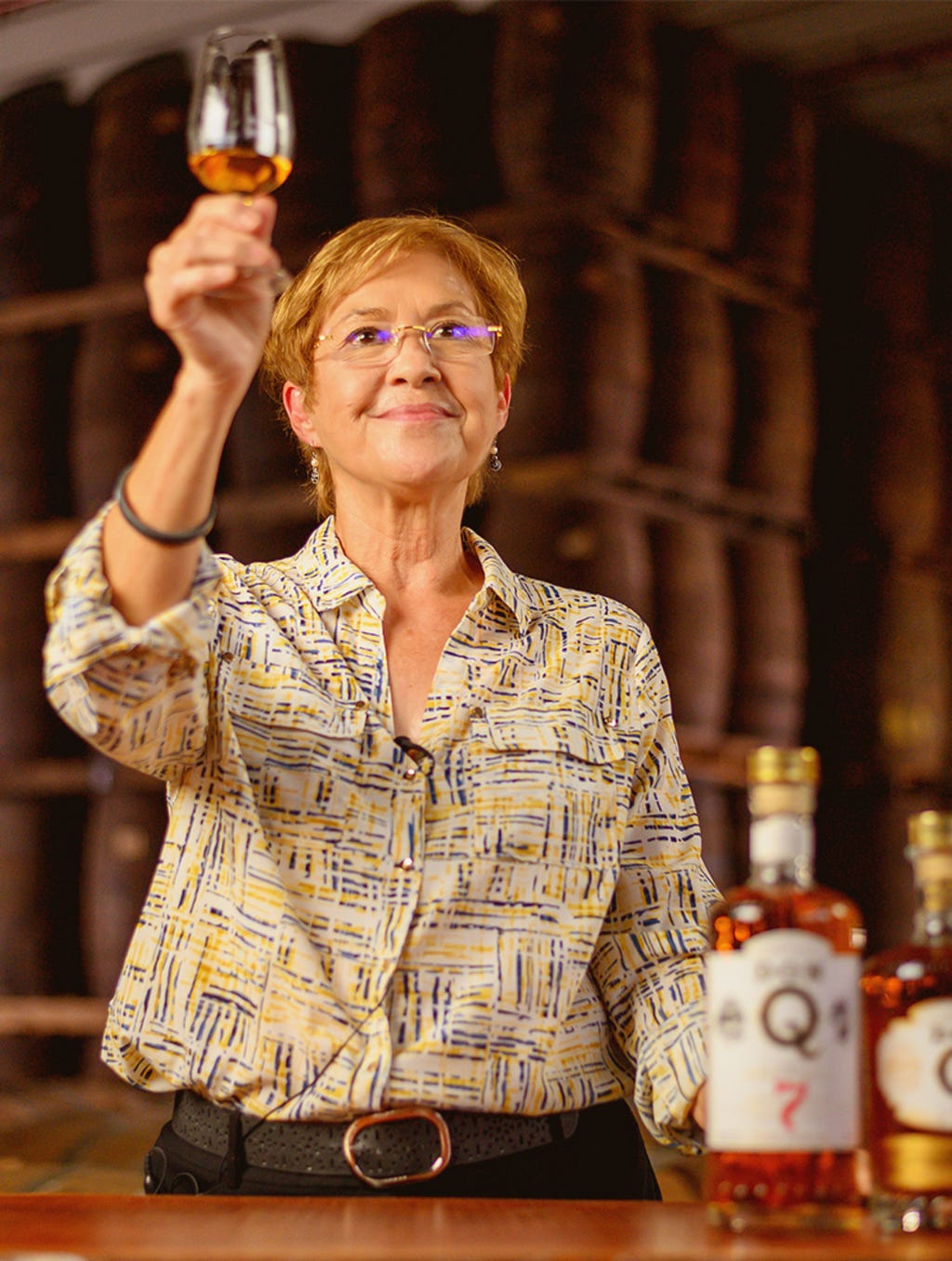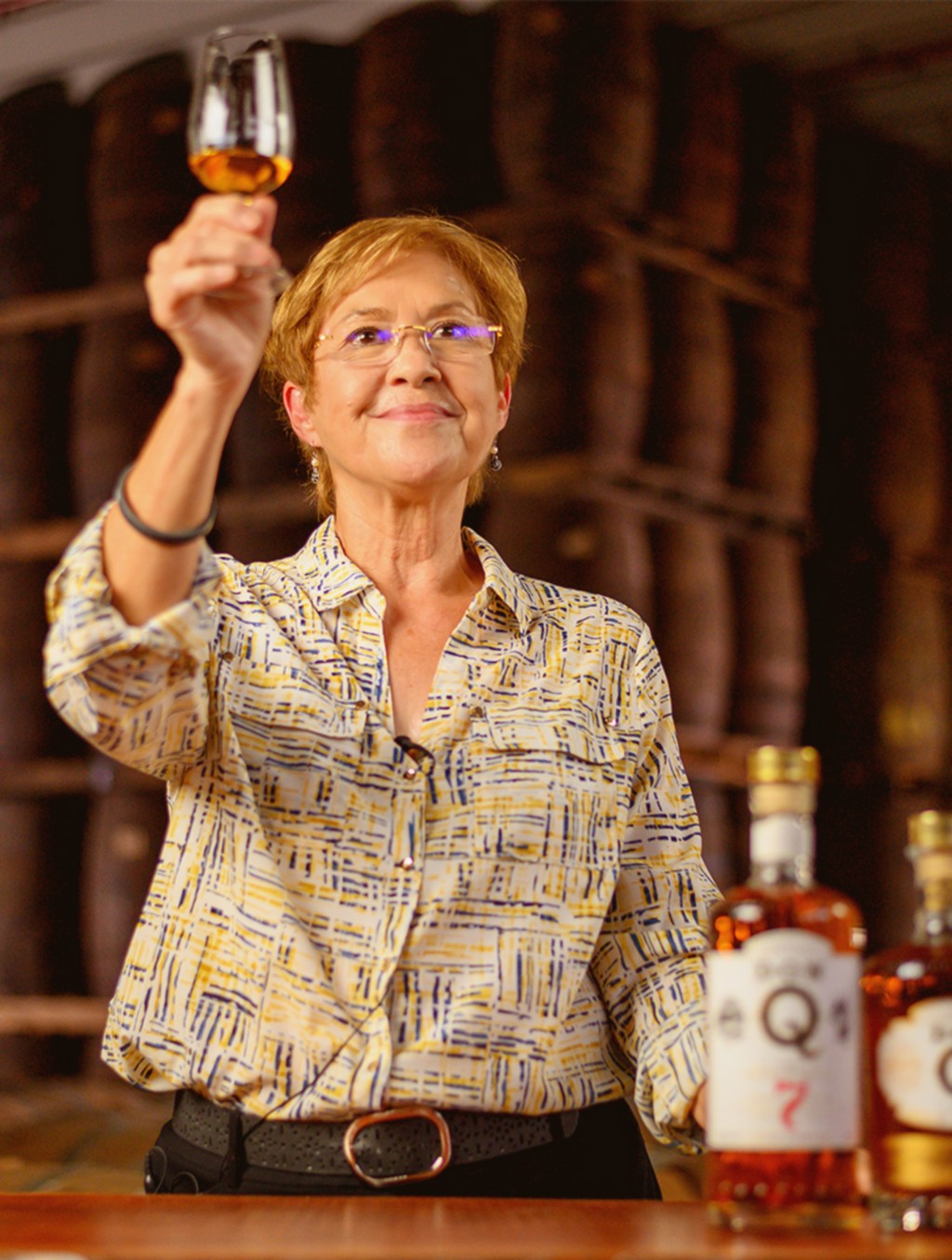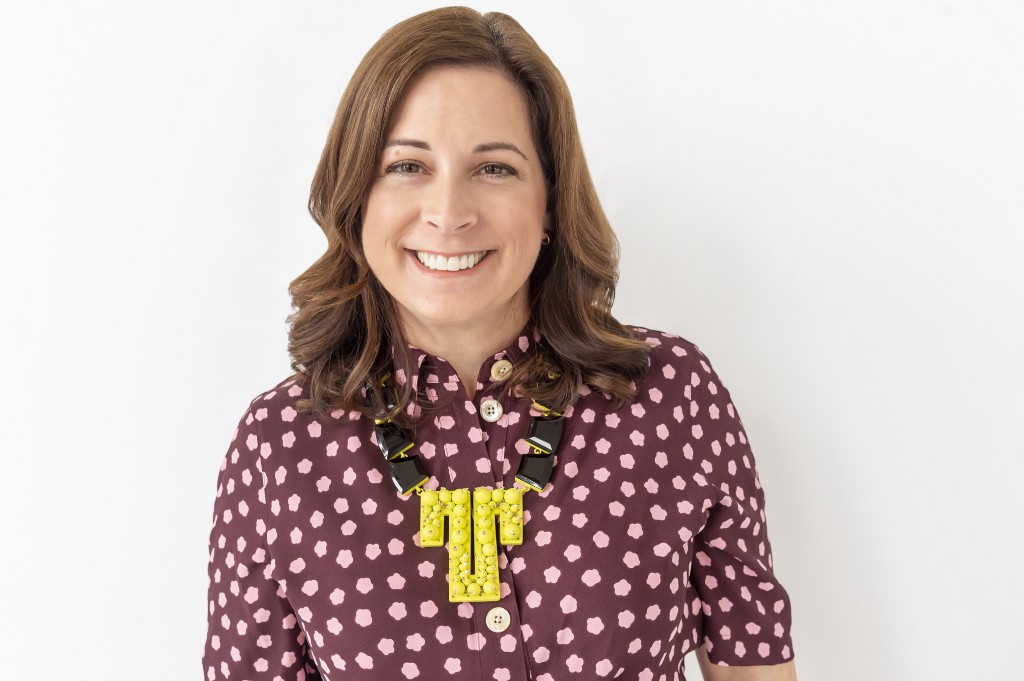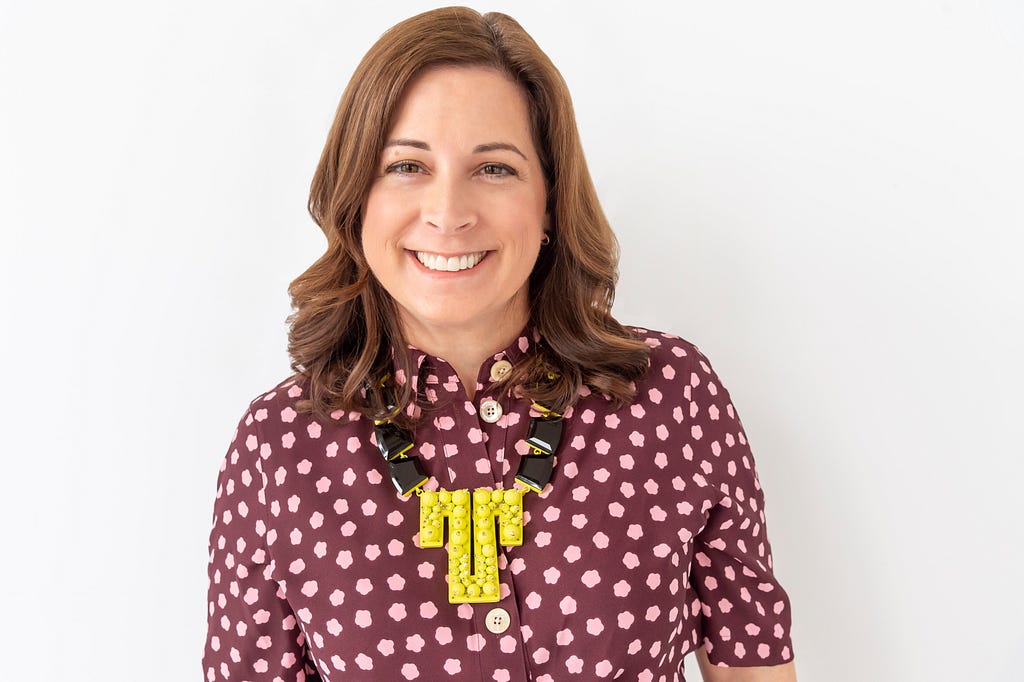Female Disruptors: Silvia Santiago of Destilería Serrallés On The Three Things You Need To Shake Up Your Industry

Don’t solely rely on written communication. There are many things that can be resolved by talking it through. The written word is hard to retract and tone is hard to interpret. For example, I once reported what I thought was a problem that could affect a product and, in the end, there was no error but what I wrote affected many individuals. This is a lesson I have not forgotten.
As a part of our series about women who are shaking things up in their industry, I had the pleasure of interviewing Silvia Santiago.
Silvia Santiago is the Maestra Ronera at Destilería Serrallés, Inc. She began her career with Don Q Rum in 1973 working with fermentation as a microbiologist and continued moving to other positions such as Laboratory Supervisor, Director of Quality Control and Compliance Director up to her current position. Besides being responsible for the entire manufacturing process, starting with the purchase of sugarcane molasses up to bottling the finished product, blending and tasting distillates and aged products is part of her daily work.
For Santiago, every opportunity is a good one to find a new aroma and a new flavor. She believes that it is important to maintain the traditional way of making the best rum, but “the brave new world” also requests innovation. Balancing both forces is her daily task at Destilería Serrallés.
Thank you so much for doing this with us! Before we dig in, our readers would like to get to know you a bit more. Can you tell us a bit about your “backstory”? What led you to this particular career path?
I studied Medical Technology. My plan was to work in a hospital, running blood samples and drawing blood from patients. Meanwhile, Destilería Serrallés was looking for someone to research the yeast and fermentation process. My studies in microbiology were relevant to the research work and they hired me. I graduated on a Friday and started working at the distillery’s laboratory the following Monday. Working in a rum production facility was such a different scenario from working in a hospital. I fell in love immediately! The smell of the molasses, the sounds of the distillation, interacting with people who were so involved with the process and so passionate about their work; my inner being felt that I was in “my place.”
Can you tell our readers what it is about the work you’re doing that’s disruptive?
Leading as a woman in a male-dominated industry has been disruptive for some time and still is today. The perception has been, “what do women know about alcohol, distilling, blending, and tasting?” Because of my female intuition, I sometimes lean on my sixth sense when it comes to the aging and blending process. So for me, introducing intuition in the rum-making process is disruptive and also adds an extra dimension that has worked for me throughout my career.
For example, when working on a specific blend, my gut told me to give it more contact with the wood and leave it in the barrel longer. When my colleagues questioned me, I told them that I was guided by my intuition, which I believe is information hidden in the subconscious, and I was being guided to make certain decisions. When the final product was ready, it had a certain “something else,” what some may call umami, that can’t be explained, but it worked and made the product a winner.
Can you share a story about the funniest mistake you made when you were first starting? Can you tell us what lesson you learned from that?
When I first started using contact lenses, my eyes were always irritated and red. While visiting the restroom and applying eyedrops, I complained to a colleague. She smiled softly and said: “Oh, I thought your eyes were like that because you have to continuously taste the rum in the laboratory.” I was shocked to hear that my co-workers thought I spent my entire workday drinking rum! I have since made it a point to educate people on the marvelous combination of craftsmanship, tradition and science involved in rum making and that, in tasting, you do not swallow the sample. You just “wash” your mouth and use a spittoon, similar to wine tasting.
We all need a little help along the journey. Who have been some of your mentors? Can you share a story about how they made an impact?
When I started at Destilería Serrallés, I was the first female to work in the production area. All the “bosses” were older men with a lot of experience, and they were very protective of their responsibilities. They were my mentors. I asked a lot of questions and they took the time to explain every step of the process to me. I was very young and did not pose a threat to them. They led by example and were dedicated to their work, loyal to the company and passionate about the process. They taught me that the product (in this case, rum) must be respected, the customers are the reason for our existence and the suppliers are the ones who tend the hand in moments of need, and above all, they taught me to be ethical.
In today’s parlance, being disruptive is usually a positive adjective. But is disrupting always good? When do we say the converse, that a system or structure has ‘withstood the test of time’? Can you articulate to our readers when disrupting an industry is positive, and when disrupting an industry is ‘not so positive’? Can you share some examples of what you mean?
When to discard something that has existed for decades or when not to shake the tree… is a difficult decision. I would say that if what you are going to introduce could have a positive impact, do it. Don’t introduce change for the sake of making a mark, if certain things have withstood the test of time, there must be a good reason. An example of this in the spirits business is the laws that establish a product or category. For example, broadening the definition of a spirits category, for example rum, so that anything can be classified under this category dilutes the integrity of the category as a whole and causes confusion to the customer.
Can you share 3 of the best words of advice you’ve gotten along your journey? Please give a story or example for each.
1. Don’t solely rely on written communication. There are many things that can be resolved by talking it through. The written word is hard to retract and tone is hard to interpret. For example, I once reported what I thought was a problem that could affect a product and, in the end, there was no error but what I wrote affected many individuals. This is a lesson I have not forgotten.
2. Employees do not come to work to do their jobs poorly, it’s important to give them an opportunity. For example, I had an employee who continually made accounting errors. He was not thriving in his position but there was another opportunity in another department with different responsibilities. When we spoke about this, I expected him to be discouraged and displeased, however, it was the contrary. He was excited and grateful for another opportunity where he would apply a different skillset because he wanted nothing more than to do his job well. He worked at the distillery in this new department until he retired.
3. Help those in need, including your competition. In manufacturing, we all have similar processes. I once helped another producer who had an ingredient shortage. Several years later, that same producer set up a factory for one of the packaging elements that we use. They supplied us with the best quality material, at the best price because they knew how we conduced business. That applies to all aspects of life, both professional and personal.
We are sure you aren’t done. How are you going to shake things up next?
Keeping myself active in manufacturing is a disruptive act. I have been working with Destilería Serrallés for 47 years, but much remains to be done. We must contribute to society and help in the areas that we understand affect us all. New generations must learn the value of hard work, ethics and education. Whether they like it or not, they are the inheritors of today.
In your opinion, what are the biggest challenges faced by ‘women disruptors’ that aren’t typically faced by their male counterparts?
Believing that they can be positive disrupters.
Do you have a book/podcast/talk that’s had a deep impact on your thinking? Can you share a story with us?
With little time to read, I am a big fan of audio books. Steel Magnolias by Robert Harling is a classic and my favorite. It highlights the humanity in us, to be true to who you are, not to be afraid of death, and that life is precious no matter what.
You are a person of great influence. If you could inspire a movement that would bring the most amount of good to the most amount of people, what would that be? You never know what your idea can trigger. 🙂
I would start a movement for active listening to one another, and ensure we are REALLY listening. This entails paying attention with the purpose of hearing the other person closely with our ears, our eyes and with our heart. When we truly listen, a connection is made between the participants and then productive relationships are formed.
Can you please give us your favorite “Life Lesson Quote”? Can you share how that was relevant to you in your life?
“It is nice to be important, but it’s more important to be nice.” John Templeton
I saw this quote early in my career, in the office of a Vice President at a large company. At the time, I didn’t understand the meaning. It sounded more like a clever phrase. Now, that the road behind me is long, its meaning is clear: we want to be remembered and at the end of the day, people remember you for the way you treated others.
How can our readers follow you online?
Twitter: @donqrum
Facebook: @DonQ
LinkedIn: https://www.linkedin.com/company/destileria-serralles-inc.
Female Disruptors: Silvia Santiago of Destilería Serrallés On The Three Things You Need To Shake Up was originally published in Authority Magazine on Medium, where people are continuing the conversation by highlighting and responding to this story.




